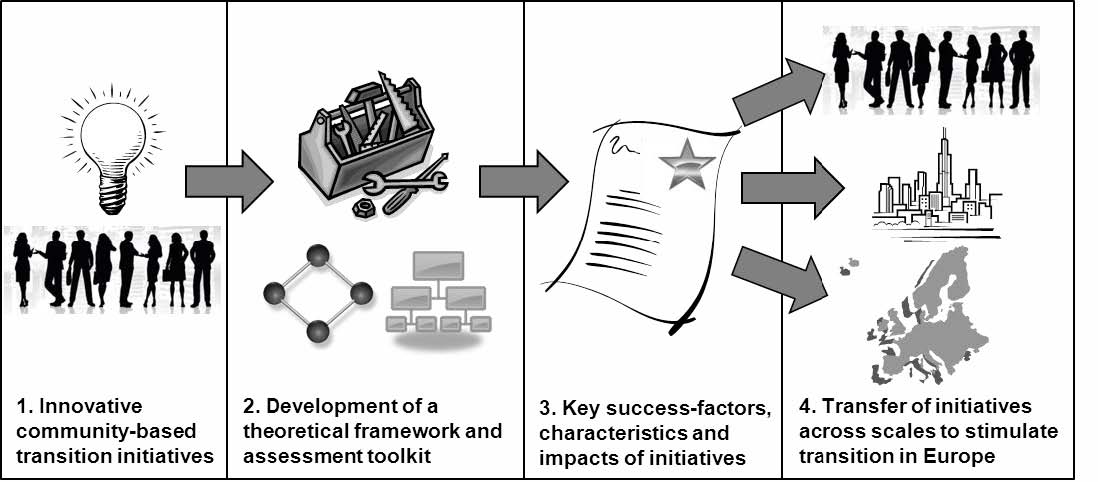 TESS is a three-year European-wide research project, receiving funding from the European Community’s Seventh Framework Programme.
TESS is a three-year European-wide research project, receiving funding from the European Community’s Seventh Framework Programme.
Who we are
Partners from six European countries are involved in this research project: These include:
- Potsdam- Institute for Climate Impact Research, Germany (www.pik-potsdam.de)
- James Hutton Institute, Scotland (http://www.hutton.ac.uk/)
- Universitat Autònoma de Barcelona, (http://www.uab.es)
- Università degli Studi di Roma La Sapienza, Italy (http://www.uniroma1.it/)
- T6 Eco, Italy (http://www.t-6.it )
- Climate Futures, Scotland (http://www.climatefutures.co.uk/index.htm)
- Oulu University of Applied Sciences, Finland (http://www.oulu.fi/english/)
- University Stefan Cel Mare Suceava, Romania (http://www.usv.ro/index.php/en)
Why community-based initiatives and sustainability?
There is a growing recognition that a transition to sustainable and low-carbon societies is urgently needed. To meet the ambitious emission reduction goals the EU has set up, far-reaching changes to modes of production and consumption and active participation of citizens all across Europe are required.
Numerous community-based initiatives show what this participation can look like, such as sharing cars in urban areas, fostering sustainable land use, recycling valuable resources and supporting low-carbon food-production. Those initiatives are very innovative and often reach a lot further than the political consensus about low-carbon transition. But how much do these initiatives contribute in terms of carbon emission reduction and initiating broader transformation processes?
Research for and about community-based initiatives
The TESS project will analyse multiple European community-based initiatives in terms of their “climate efficiency” and up-scaling potential. Additionally, the project will develop an accounting system to identify general success factors and beneficial impacts that will make initiatives comparable in terms of their trajectories and output. The results of this research will be used to help initiatives maximize their impact. Through an interactive online platform the TESS project will support networking between initiatives, stakeholders, policy makers and the media, helping initiatives to become more widespread and structurally embedded. The research is conducted by an interdisciplinary team of social and natural scientist from renowned institutions.

Our next steps
We finalized the mapping of initiative and selected our case studies. Currently all the partners are conducting interviews with the case study initiatives to gather both qualitative and quantitative data on success factors of initiatives and climate efficiency. The project website (www.tess-transition.eu) has been launched and is frequently updated. The interactive platform (www.sustainable-communities.eu) has also been launched and we are very active in establishing networks between researchers and initiatives.





